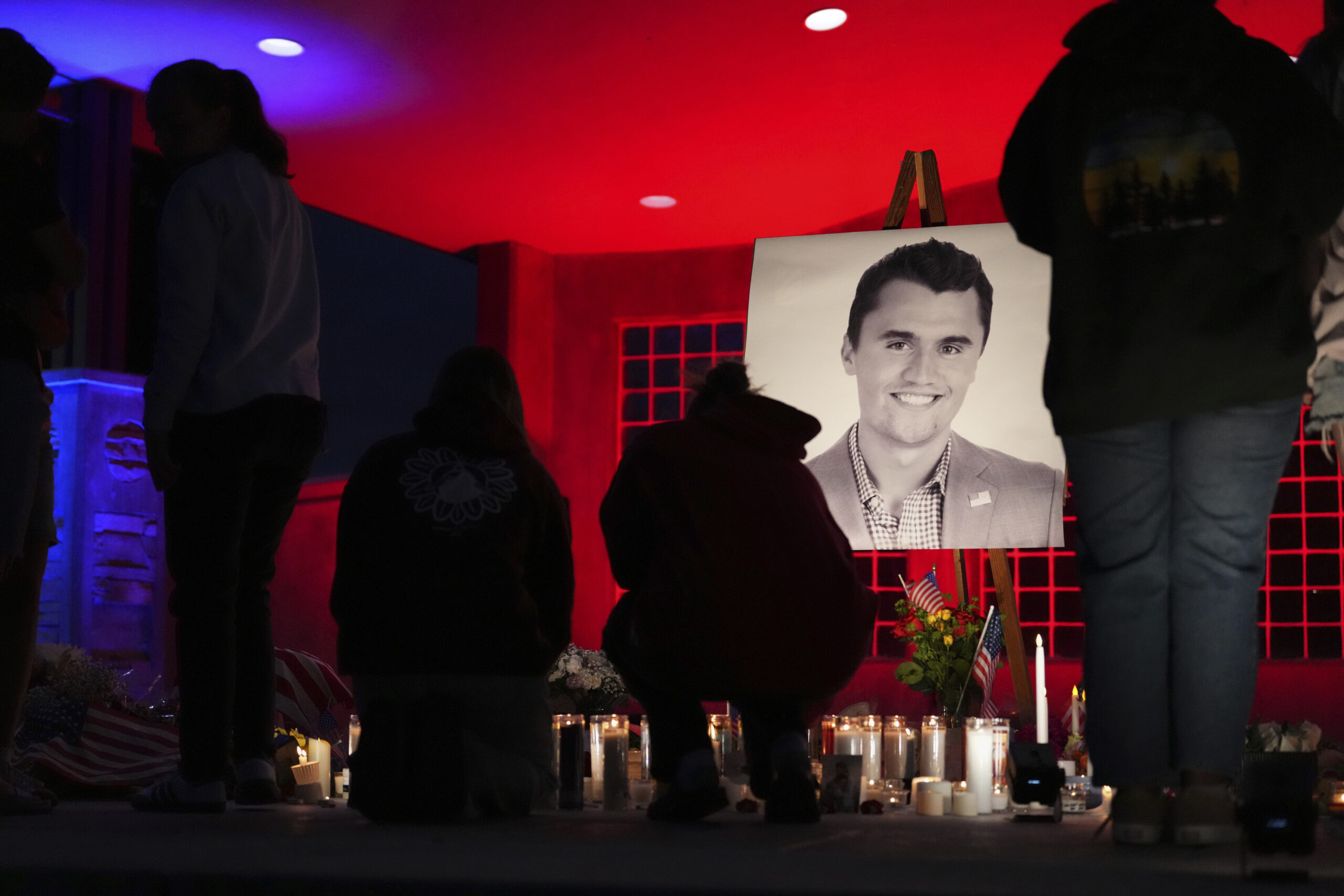
(RNS) — I didn’t think much about Charlie Kirk during the first decade or so of his career, but when I did I was sure I didn’t like him. I understood his campus organization, Turning Point USA, to the extent I tried to understand it at all, as an unthinking libertarian activist organization funded by rich people who wanted to keep their taxes low.
The fact that it was run by a naive teenager who didn’t understand the realities of what kinds of taxes and social programs were necessary to further the common good made it more suspect.
And, in my defense, that’s a good chunk of what Turning Point USA was. At least at first.
But as Charlie grew and changed and learned — an ability that became his superpower over the years — he and his organization changed. He genuinely listened to people who thought differently and took their views to heart. He became more of a populist, one who eventually moved toward government ‘picking winners and losers’ in favor of children and families, such as when he supported child tax credits over and against the flat tax favored by his early libertarian heroes, like Ron Paul.
I was hopeful that his rumored move toward Catholicism would help him move still further toward a view of subsidiarity — the idea that the most good can be done at the local level, with higher-level governments or other organizations only stepping in when their power can distribute the good more broadly.
There was good reason for this hope, as, again, Kirk loved to learn, reserved the right to change his mind and believed in God’s ability to change people. Despite never finishing college, he found other ways to educate himself and, by all accounts, his reading and engagement with academics and thinkers moved him in profound ways. I’ve listened to many people over the last couple days who knew him well, and most of them point to his 2021 marriage to his Catholic wife, Erika, as another profound source of change in his life.
Even his political and ideological opponents would comment on his curiosity, good-faith engagement and willingness to change his mind in light of new evidence. And they have said so even more directly after his death.
But everyone who knew Charlie agreed that he was a Christian. Jesus Christ and his gospel were the source of his ultimate concern.
That may seem a strange view to those who know him primarily through viral clips of what at least appears to be him trolling college students as he engages them on hot-button issues. But anyone who watches the full videos of his appearances on these campuses can see that it is an exception to the rule. He was consistently respectful and even empathetic to those who disagreed with him — shouting down the crowd when they were rude to the questioner and giving those who disagreed with him the first chance to ask questions. Sometimes Charlie even tells an opponent they have a good point and that he needed to think about it more.
Charlie was committed to argument and to evidence, especially when it came through an encounter with another human being who was made in the image and likeness of God. Though, like all Christians, Charlie sometimes failed at offering charity, the last few years demonstrated the life of a man who was motivated by anything but hate. He seemed to genuinely love people and, by all accounts, was generous and forgiving and didn’t hold grudges.
But now Charlie is dead, and the post-assassination discourse is largely about what comes next.
Some, with good reason, fear a spiral into darkness. Not only for our discourse, but for our polity and nation. I’ve heard activists on the right say they now understand how somebody would be moved to use violence, as “those people” who did this to Charlie did.
But Kirk himself — a Christian activist who opposed war in favor of a Gospel-centered peace — would have hated this kind of reaction. I have no doubt that if Charlie had survived he would have wanted to meet with the person who tried to take his life, as St. John Paul II did, and offer him forgiveness. He would have been curious about the person’s story and would have tried to use persuasion and the power of a genuine encounter to change his mind and heart.
This is the power of the Gospel. In particular, it is the power of the sixth chapter of the Gospel of Luke, the gospel reading for daily Catholic Mass the day of Kirk’s death:
And if you do good to those who do good to you, what credit is that to you? Even sinners do the same. If you lend money to those from whom you expect repayment, what credit is that to you? Even sinners lend to sinners, and get back the same amount. But rather, love your enemies and do good to them, and lend expecting nothing back; then your reward will be great and you will be children of the Most High, for he himself is kind to the ungrateful and the wicked. Be merciful, just as also your Father is merciful.
If we have a chance of avoiding the spiral toward the darkness so many are predicting after this terrible event, it will be in trying to live out these gospel values. Happily, in doing the hard work of living out these Gospel values, we also honor the legacy of Charlie Kirk.
